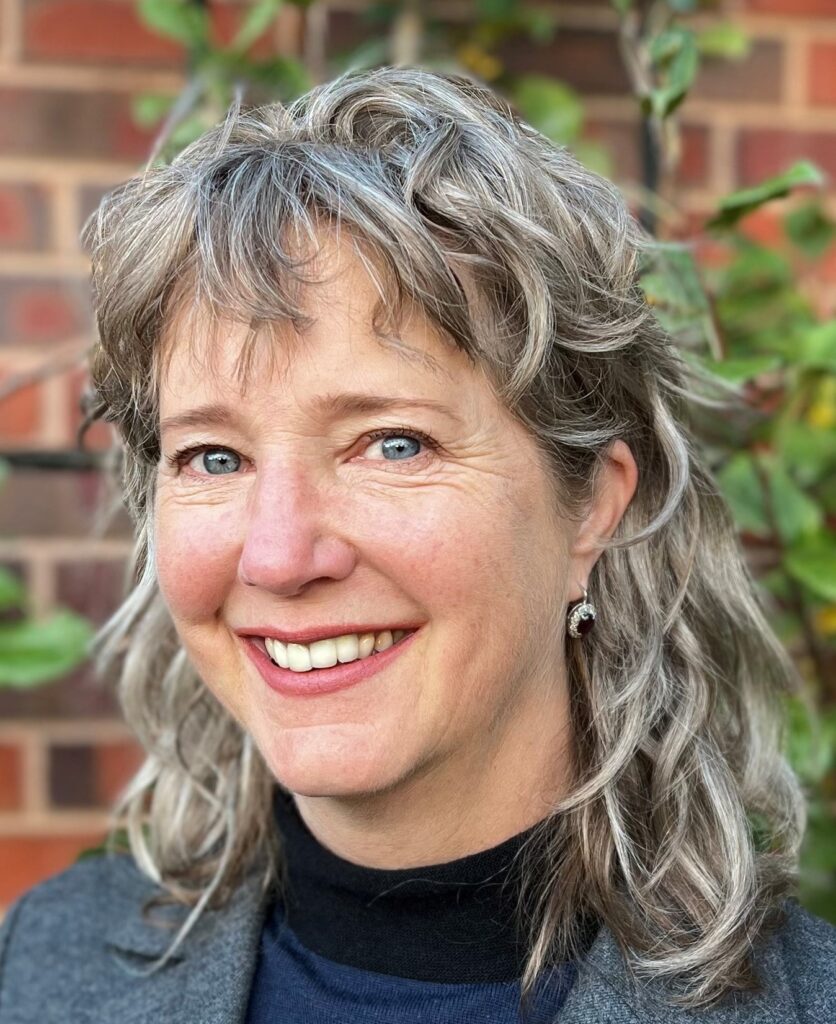October 25, 2023

Sarah Parker, MD, is Professor of Pediatric Infectious Diseases at University of Colorado School of Medicine and Medical Director of the Antimicrobial Stewardship Program at Children’s Hospital Colorado (CHCO). She earned her medical degree from Vanderbilt University Medical Center. Her residency and fellowship in pediatric infectious diseases were both completed at University of Colorado School of Medicine/Children’s Hospital Colorado.
Dr. Parker’s Antimicrobial Stewardship Program is known for developing Handshake Stewardship, now considered a best practice by the U.S. Centers for Disease Control and Prevention and The Joint Commission. She is a member of the Pediatric Committee on Antimicrobial Stewardship and the Programs and Meetings Committee. Dr. Parker is the newly elevated PIDS Chair for IDWeek.
Why Pediatric ID? My story starts at my inner-city high school. I had a wonderful world studies teacher that influenced me more than perhaps anyone else. I didn’t really have a strong interest in college, and with his guidance chose a work abroad program in Costa Rica, this was in 1985 during the Nicaraguan civil war, before Costa Rica became a popular tourist destination. I worked in an orphanage for a year, and this sparked an interest in pediatrics and healthcare, in general. The fifty children I helped take care of every day taught me Spanish and gave me so much, but I felt there was little I was giving back, and I wanted that to change. They were mostly war orphans, and tuberculosis, malnutrition, and skin infections were common problems. One of my duties was chaperoning the kids to the hospital or doctors’ offices as needed; that opened my eyes. At the time, I decided I would become a nutritionist.
When I was taking my science classes, though, I always had a lot of questions and finally one of my instructors suggested I should probably be a doctor, not a nutritionist. I felt I needed to see what that was like first and worked at Denver Health, our local catchment hospital, doing research for a wonderful neonatologist. I loved it! I worked for her for two summers and then applied to medical school and ultimately went to Vanderbilt, where I was mentored by Kathy Edwards. I chose Pediatrics, then during residency, it was infectious diseases that kept my interest the most and after reflecting on the things I had seen in Costa Rica and the needs of those kids, I decided on ID.
After doing basic science mycobacterial research for 12 years, I felt I had to decide on whether to do clinical care or research and a PhD. I knew I couldn’t give up my first love of clinical care, and in 2011 the opportunity to start the antimicrobial stewardship program came. My background of genetically manipulating microbes in the laboratory for so many years serves me well in stewardship.
Where have you taken you ID focus? We have a very well-established antimicrobial stewardship program at CHCO now. We started a method called Handshake Stewardship, which is now considered a best practice in CDC and The Joint Commission documents. We’ve grown a lot, added a pharmacist, an outpatient program, and liaisons throughout the hospital. We constantly recruit stakeholders for projects in quality improvement-antibiotic use-clinical care-patient safety realm. We’ve cut the use of antibiotics in our hospital by over 25%, which saves the hospital at least $2 million per year thanks to the decrease in drug use.
We also now have a contract with the state of Colorado to improve antibiotic use statewide that is going very well. Two weeks ago, we launched an app – Firstline – that we built for the state. It allows users to see our and our adult partners’, Denver Health, clinical care pathways, antibiotic dosing, and pathogen information to make it easy to do good stewardship. The app was built for the state of Colorado, but anyone can download it and use it for free worldwide.
What is a recent development in peds ID you are working on? People are adopting Handshake Stewardship and we continue to promote it as a best practice. It is really rewarding, and a wonderful way to combat the burnout so common in stewardship, due to all the positive interactions. We had an abstract for Firstline at IDWeek authored by our wonderful fellow, Joana Dimo, and we are working to assess its impact on our state.
As the new PIDS Chair for IDWeek I’m very excited to see the submissions for 2024 (deadline for submissions is November 1). We want to highlight and promote great content at the meeting. I’m trying to lend a different view of the type of content we might be looking for at the meeting. One of my big pushes is to get people to submit sessions and get new content into IDWeek. Sessions can be submitted to the Pediatrics group if they are purely pediatrics, but we also encourage submissions to all the categories as appropriate for the topic. A stewardship idea, for example, could be submitted to the stewardship category; it is great to have combined peds-adult programming submitted as well. We would love to have lots of sessions submitted to highlight the work that Society members are doing, and ideas for what they want to hear.
What do you enjoy most about being a PIDS member? What keeps you renewing your membership? I really enjoy learning what my colleagues are doing and what new strategies people are trying. I’ve learned a lot through PIDS and going to IDWeek. Being a member is also a terrific way to continue to expand my involvement in mentorship. I really enjoy mentoring and being able to promote talented people. Discovering those people is a real joy, and I do a lot of that through PIDS.